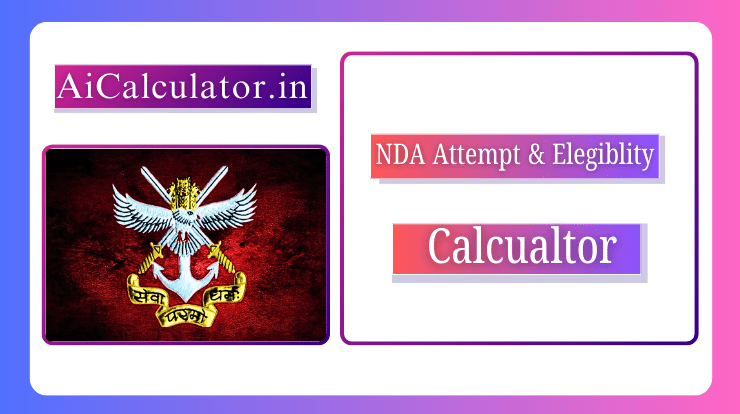🚗 Car Mileage Calculator
Calculate your vehicle’s fuel efficiency and mileage. Enter your odometer readings and fuel consumption to get accurate mileage in both km/l and mpg.
What Is Car Mileage?
Car mileage refers to the distance your vehicle can travel per unit of fuel consumed. In most countries, this is measured as kilometres per litre (km/L), while in the United States, it's typically expressed as miles per gallon (MPG). Understanding your car's mileage helps you gauge its fuel efficiency and overall performance.
Several factors influence your vehicle's mileage, including engine condition, driving habits, road conditions, weather, and vehicle maintenance. A fuel efficiency calculator takes these variables into account by using actual driving data rather than manufacturer estimates, providing you with real-world performance metrics.
Knowing your car's actual mileage is essential for making informed decisions about vehicle maintenance, driving routes, and even whether it's time to consider a more fuel-efficient vehicle.
How the Car Mileage Calculator Works
A car mileage calculator uses a straightforward approach to determine your vehicle's fuel efficiency. The process involves collecting two key pieces of data and applying a simple mathematical formula to calculate your car's performance.
Distance Traveled
The first component needed to calculate car mileage is the total distance travelled during your measurement period. This distance should be measured from your starting point to your destination, typically recorded using your vehicle's odometer.
For accurate results, record your odometer reading at the beginning of your measurement period and again when you refuel. The difference between these two readings gives you the exact distance travelled. Many modern vehicles also provide trip meters that can be reset at each fill-up, making this process even more convenient.
Fuel Consumed
The second essential component is the amount of fuel consumed during your journey. This is typically measured in litres or gallons, depending on your location and the units your fuel efficiency calculator uses.
To get accurate fuel consumption data, fill your tank completely at the start of your measurement period, then fill it completely again at the end. The amount of fuel needed for the second fill-up represents your total fuel consumption for the distance travelled.
Car Mileage Formula Explained
The car mileage calculation uses a simple yet effective formula that anyone can understand and apply:
Mileage = Distance Travelled ÷ Fuel Consumed
This formula works regardless of the units you use, whether you're calculating in kilometres per litre, miles per gallon, or any other measurement system. The key is maintaining consistency in your units throughout the calculation.
For example, if you travelled 500 kilometres and consumed 40 litres of fuel, your mileage would be 500 ÷ 40 = 12.5 km/L. Similarly, if you drove 300 miles using 12 gallons of fuel, your mileage would be 300 ÷ 12 = 25 MPG.
Step-by-Step Guide: How to Use the Calculator
Using a vehicle mileage calculator is straightforward when you follow these simple steps:
- Start with a full tank: Fill your fuel tank and record the odometer reading or reset your trip meter to zero.
- Drive normally: Use your vehicle as you normally would, whether for daily commuting, long trips, or mixed driving conditions.
- Return to refuel: When you're ready to calculate your mileage, return to a gas station and fill your tank completely again.
- Record the data: Note your new odometer reading and the amount of fuel needed to fill the tank.
- Calculate the distance: Subtract your starting odometer reading from your ending reading to determine the total distance travelled.
- Input the data: Enter your distance travelled and fuel consumed into the car mileage calculator.
- Review your results: The calculator will provide your fuel efficiency in both km/L and MPG, along with additional insights about your vehicle's performance.
Benefits of Calculating Car Mileage
Regular use of a fuel efficiency calculator offers numerous advantages for vehicle owners:
Cost Management: Understanding your car's fuel consumption helps you budget more accurately for transportation costs and identify when rising fuel expenses might warrant changes to your driving habits or vehicle choice.
Vehicle Comparison: When shopping for a new car, having real-world mileage data from your current vehicle provides a baseline for comparing fuel efficiency between different models and makes.
Maintenance Insights: Declining fuel efficiency often indicates maintenance issues such as dirty air filters, worn spark plugs, or tire problems. Regular mileage calculations help you spot these issues early.
Environmental Impact: Tracking fuel efficiency encourages more eco-friendly driving habits and helps you understand your vehicle's environmental impact.
Performance Monitoring: Changes in fuel efficiency can indicate engine problems before they become serious, potentially saving you money on major repairs.
Real-Life Examples of Car Mileage Calculation
Understanding how different vehicles perform can help you make informed decisions about fuel efficiency:
| Vehicle Type | Distance Traveled | Fuel Consumed | Calculated Mileage |
|---|---|---|---|
| Compact Sedan | 400 km | 28 L | 14.3 km/L (33.6 MPG) |
| Mid-size SUV | 350 km | 35 L | 10.0 km/L (23.5 MPG) |
| Hybrid Car | 500 km | 23 L | 21.7 km/L (51.0 MPG) |
| Pickup Truck | 300 km | 42 L | 7.1 km/L (16.7 MPG) |
These examples demonstrate how vehicle type significantly impacts fuel efficiency. A car mileage calculator helps you understand where your vehicle fits within these ranges and whether your results align with expected performance.
Tips to Improve Your Car's Mileage
Once you've established your baseline fuel efficiency using a vehicle mileage calculator, consider these proven strategies to improve your car's performance:
- Maintain steady speeds: Avoid rapid acceleration and hard braking, which can reduce fuel efficiency by up to 40%
- Keep tyres properly inflated: Under-inflated tyres can decrease mileage by 0.2% for every 1 PSI drop in pressure
- Remove excess weight: Every 100 pounds of additional weight can reduce efficiency by up to 2%
- Avoid excessive idling: Turn off your engine when stopped for more than 30 seconds
- Use cruise control: On highways, cruise control helps maintain steady speeds and improve fuel economy
- Regular maintenance: Keep up with oil changes, air filter replacements, and tune-ups
- Plan efficient routes: Combine errands and choose routes with less traffic and fewer stops
- Check your driving habits: Smooth, gradual acceleration and deceleration significantly improve efficiency
FAQs About Car Mileage Calculators
How often should I calculate my car's mileage?
Calculate your mileage every time you fill up your tank to track trends and identify changes in performance quickly.
Do weather conditions affect mileage calculations?
Yes, cold weather, strong winds, and using air conditioning can all impact fuel efficiency. Your car mileage calculator will reflect these real-world conditions.
Is manufacturer-stated mileage accurate?
Manufacturer estimates are based on controlled testing conditions and may not reflect real-world driving. A fuel efficiency calculator provides more accurate, personalised results.
Can I use a mileage calculator for motorcycles or trucks?
Yes, the same calculation principles apply to all vehicles. Simply input the appropriate distance and fuel consumption data.
What if my calculated mileage is lower than expected?
Lower-than-expected mileage could indicate maintenance needs, driving habit changes, or external factors like traffic conditions. Consider having your vehicle inspected if efficiency drops significantly.



